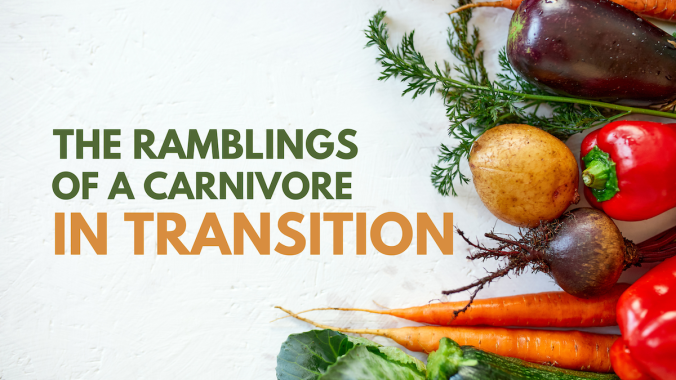Meat. Yes please. That’s it. The answer was always, “Yes, please”. I guess coming from an environment where meat was interwoven into almost every fibre of society it ceased being just about eating it at lunch and dinner time, and where fortunate, breakfast. Throughout the years, it became cultural. You’d never give it a second thought. It’s what we eat, it’s what we do, it’s who we are.
The consumption of meat back home in Zimbabwe, before economic hardships forced citizens to be more inventive and enterprising with their options, was a daily thing. You see, I come from an environment that enjoyed eating meat in its various forms. Beef and chicken being the primary sources of protein, with goat and mutton playing a more supporting role through the ages, it was always a given that when you sat down to dinner, there is a roast, a stew or some adventurous fry up that your mom or whomever was responsible for dinner that day at the table. Without it, questions would be raised.
I have lived in 4 different African countries and have travelled to many more, and the tune is the same, meat is an essential part of the diet. Nyamachoma (street grilled meat found in Kenya) stands adorn central Nairobi, Kapana (traditional grilled meat strips from Namibia) trolleys are a common site in the industrial areas of Windhoek, and the Western suburbs of Harare are home to grill establishments as far as the eye could see offering goch-goch, gango and many other meat based dishes that help lay a foundation before a night of “socializing.”
But this is not a story of meat, meat consumption and how wonderful eating meat is, neither is it a sad tale of me reflecting on how I miss digging into the perfectly grilled steak. This mini ramble is a reflection, nay a moment of realization on how meat and meat consumption is a totally different concept when you remove yourself from the situation. Since beginning my sojourn to Europe, Sweden specifically, I realised that the meat story, although prominent in the history of the land, is totally different. Apart from having to pay an arm and a leg and sometimes a kidney for the premium stuff, which, in itself, could be a deterrent to over-consumption, people watch what they eat here. What you eat becomes an almost active act of consciously thinking of what you are putting in your mouth and the journey it has taken to get in front of you.
Sustainability in the beginning was a buzz word for me, an unnecessary addition to every conversation anyone was having. I thought people had run out of ideas of what to talk about with regards to how to deal with the climate crisis and environmental challenges we are facing as a planet. I thought Europe had no options and was coming for everyone’s fillet of beef with mushroom and pepper sauce or peri -peri chicken, because the global north had decided to ignore its reliance on other ‘globe-killing’ practices. I quickly realised that for us to realise our joint mandate to “heal the world” as Michael put it, one must play their part, and that begins by making sustainable choices.
So does this mean abandoning meat consumption entirely and turning you back away from eating it. No. It means focusing your attention on not only sourcing sustainably produced meat products, but also looking at alternative ways of getting the protein into the body. I decided, out of my own convictions to walk a journey that would help me pay more attention to the food I eat. I’ll never forget when I went and told Patricia, a friend of mine studying sustainable tourism, I had decided to take on Meatless Mondays. Her face lit up and expressed boisterously (something Swedes are known not to do easily) how she was excited and proud of me. She then went on to offload a barrage of meat-free recipes for me to try, as well as offer recommendations of meat-substitutes. For the latter, I’d rather just not eat the meat than consume meat substitutes. There are very very few that are worth their weight in taste. I do thank her for the cauliflower steak and mushroom risotto one though. Epic dish.
Meatless Mondays was then joined by Planted Thursdays and before you know it, I jumped from someone who eats meat every day to meat at most during 5 meals a week out of a possible 21. Have these actions lowered global temperatures? Nope. Has this addressed the way the meat industry handles beef and beef production? Not even. Has this started a conversation on how small actions can lead to big changes if everyone gets on board and does their part? Most definitely. Have I Changed the world? I’m well on my way!
So, allow me then to re-introduce myself. Hi, my name is Earl, and I identify as a transformed carnivore in transition. I am now fully conscious and aware of my consumption habits and look to always eat in a sustainable manner. Though I still love a good steak and enjoy the pleasure a hamburger brings, I know toning it down does the planet more good than it does me, and I am going to continue to be an ambassador, especially to those who cannot be separated from their prime ribs and chicken wings. It’s all about making small changes and being consistent.
If you begin this journey, I wish you luck.


Leave a Reply